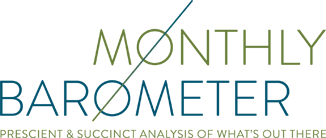
5 insightful op-eds or articles to help make sense of today’s world
Martin Wolf, “Time for Draghi to Open the Sluice”
(Financial Times, May 13, 2014 – metered paywall)
The FT’s columnist observes that the Eurozone’s recovery in confidence is encouraging, but too fragile, and the revival of growth welcome, but too feeble. Worryingly, nominal GDP must grow at close to 3% or more just to keep the high public debt ratios stable. He argues that the Eurozone authorities, and particularly the ECB – which is currently the only effective actor, should and must do far more.
http://www.ft.com/intl/cms/s/
Edward Prasad, “The Dollar Is Still King”
(Project Syndicate, May 14, 2014)
The former IMF official now turned academic explains why the renmimbi is unlikely to replace the US dollar as the dominant global reserve currency any time soon. In his opinion, China is missing one crucial ingredient: the world’s trust. As a consequence, “foreign investors are unlikely to trust China with large sums of money”.
http://www.project-syndicate.org/commentary/
Daniel Kliman, “Is China the Fastest Rising Power in History?”
(Foreign Policy, May 16, 2014)
Amidst all the noise about China’s rise, this short article stands out as it puts things into historical perspective. With the help of a few graphs, the researcher looks at whether the scale and speed of China’s ascendance is truly unique, or whether it resembles the emergence of earlier powers. China scores moderately on the first metric, and very highly on the second.
http://www.foreignpolicy.com/articles/
Nick Bilton, “Some Predictions About the Internet of Things and Wearable Tech From Pew Research”
(BITS – NYT, May 14, 2014 – metered paywall)
The blog presents a new report from the Pew Research Center Internet project (link available) that offers some insightful predictions about wearable computing and the so-called Internet of Things, where all sorts of objects will soon be connected to the Internet and each other. The future is nearer than we imagine!
http://bits.blogs.nytimes.com/2014/05/14/
Nanette Fondas, Study: “You Really Can ‘Work Smarter, Not Harder’”
(The Atlantic, may 15, 2014)
This is a short piece about a new study (with link) that corroborates what we all think intuitively: the only way to make new learning “stick” to our brain is to reflect upon it. In a nutshell, learning is more effective if a lesson or experience is deliberately coupled with time spent thinking about what was just presented. As reflection is what matters for learning, it is indeed possible to learn “smarter, not harder”.
http://www.theatlantic.com/education/archive/
